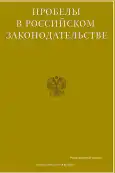Problems of Countering Cybercrime in the Russian Federation
- Autores: Kodzokova L.A.1
-
Afiliações:
- Krasnodar University of the Ministry of Internal Affairs of Russia
- Edição: Volume 16, Nº 4 (2023)
- Páginas: 287-292
- Seção: Criminal - legal, criminological, administrative and other measures for countering crime in contemporary conditions
- URL: https://journals.eco-vector.com/2072-3164/article/view/568491
- EDN: https://elibrary.ru/TDLLZI
- ID: 568491
Citar
Resumo
In the 21st century, along with information technology, cybercrime is also developing. The methods of cyber fraudsters are progressing, new ways are being invented to bypass security systems and services. For the state, counteracting cybercrime is becoming strategically important. In this regard, security systems are being improved, departments and departments for combating cybercrime appear, IT security departments are being formed in organizations, and their activities are expanding every year. Cybercrime is widespread and dangerous. So, it can be such crimes as hacking passwords from sites and pages, up to ordering by special services of different countries from anonymous groups of attacks on government organizations of unfriendly countries. It should be noted that in each subsequent year the number of attacks and the amount of payments to hackers increase. Cyber attacks happen all the time. Most of all, criminals are interested in educational, research, government and military sites. Cybersecurity legislation is constantly evolving in response to new threats and increasing damage caused by evolving cybercrime. In addition, work is constantly underway to enhance the activities of state regulators and law enforcement agencies to protect the interests of the state and society. The foregoing indicates the relevance of the topic chosen for the study. It is planned to consider the concept, some types and forms of cybercrime, methods of protection against cybercriminals, as well as problems associated with combating cybercrime in the Russian Federation.
Palavras-chave
Texto integral
Sobre autores
Lyatsa Kodzokova
Krasnodar University of the Ministry of Internal Affairs of Russia
Autor responsável pela correspondência
Email: alida.eldarova@yandex.ru
Cand.Sci.(Law), Police Lieutenant Colonel, Senior Lecturer of the Department of Law Enforcement Organization of the North Caucasus Institute for Advanced Studies (branch)
Rússia, Nalchik, KBRBibliografia
- The Criminal Code of the Russian Federation of June 13, 1996 No. 63-FZ (as amended on July 29, 2017 No. 250-FZ) // Collection of Legislation of the Russian Federation. - 1996. - No. 25. - Art. 2954.
- Federal Law of June 27, 2011 No. 161-FZ “On the National Payment System” // SZ RF. - 2011. - No. 27. - Art. 3872.7.
- Federal Law of July 27, 2006 No. 149-FZ “On Information, Information Technologies and Information Protection” // SZ RF. - 2006. - No. 31. - Art. 3448.8.
- Decree of the President of the Russian Federation of December 5, 2016 No. 646 “On Approval of the Information Security Doctrine of the Russian Federation” // SZ RF. - 2016. - No. 50. - Art. 7074.
- Anosov A.V. The activities of the internal affairs bodies to combat crimes committed using information, communication and high technologies: textbook. allowance / A. V. Anosov. - M.: Academy of Management of the Ministry of Internal Affairs of Russia, 2019. - 208 p.
- Artamonov V.A. Cybersecurity in the context of digital transformation of society / V.A. Artamonov // Greater Eurasia: development, security, cooperation. - 2022. - No. 1. - P. 777-784.
- Akhrieva M.M. Cybercrime in the conditions of modern economy / M.M. Akhrieva // International Journal of Humanities and Natural Sciences. - 2021. - No. 8-2 (59). - P.80-82.
- Didenko K.V. Some problems of detection and prevention of cybercrimes / K.V. Didenko // Bulletin of the BUI of the Ministry of Internal Affairs of Russia. - 2020. - No. 3. - P.20-24.
- Russkevich E.A. Criminal law and "digital crime": problems and solutions: monograph / E.A. Russkevich. – M.: INFRA-M, 2019. – 227 p.
- Shikula I.R., Kurkin E.N. Cybercrime in the Russian Federation: main methods of struggle and problems of counteraction // International Journal of Experimental Education. - 2023. - No. 1. - P. 37-41.
Arquivos suplementares











